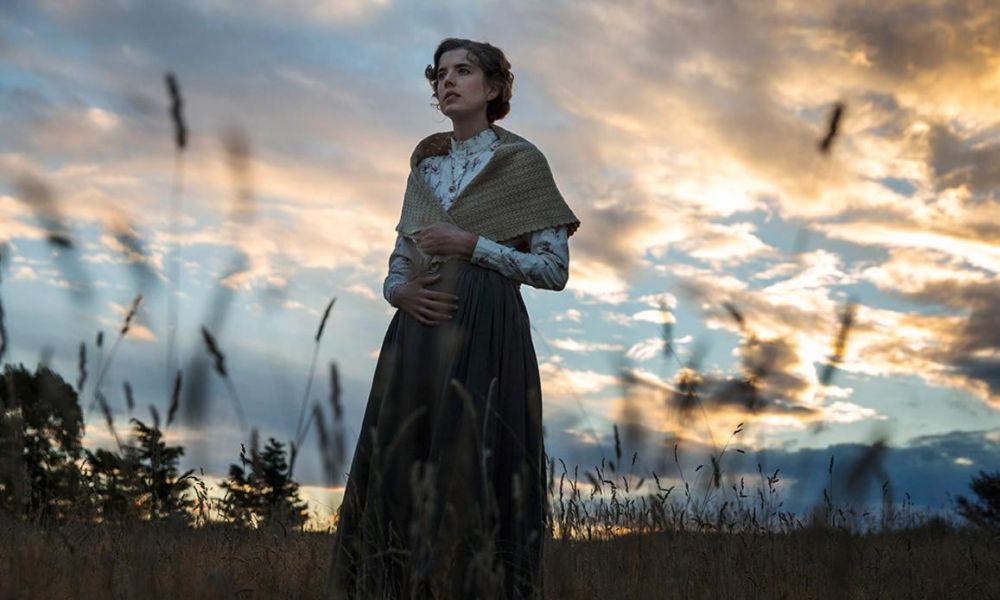 (2.5 / 5)
(2.5 / 5)
The first impression you are likely to get Sunset Song, a long-awaited adaptation of the Lewis Grassic Gibson novel, is one of absolute lyricism.
Terrence Davies’ camera drifts circuitously over pale stalks of grain, which darken almost imperceptibly, perhaps as a cloud passes overhead. Over the curve of the hill is visible a vivid robin’s egg blue sky; the swirl of clouds. This may be Aberdeenshire and on the verge of the Second World War, but this is country that Van Gogh — who Michael McDonough’s cinematography tacitly evokes — may well have felt at home in.
The landscape is so idyllic — the grass so green, the light so pure — that it almost undermines the tragedy playing out in the Guthrie cottage. First seen lying amidst the corn, the eldest daughter, Chris (Agnes Deyne), is an unassuming, fair-haired beauty; a student of note with aspirations of becoming a teacher.
Her strapping, distinctly Gallic brother, Jack (Will Guthrie), is an object of abuse for her patriarchal father, John (Peter Mullan), as is her wistful mother, Jean (Daniela Nardini), broken by decades of agonizing childbirth. “You’ll have to face men for yourself when the time comes,” she tearfully tells her daughter — and indeed the time does come.
Men in Davies’ film inspires both vague fear and a hint of promise. Jack’s friend, for instance — the nascent, dark-eyed Ewan (Kevin Guthrie, who co-starred with Mullan in Sunshine on Leith) — could, unspokenly, be a romantic partner for Chris, her first, or, eventually, just another lechy, opinionated man at the banquet table.
They gather in the Guthrie’s living room to reservedly drink whiskey when times get rough, but film lacks the scope of a community — perhaps understandable given the sort of man we take John to be. Mullan hints at the contradiction of a man who will cheerfully join in a folk tune one scene and viciously beat his son with his belt a few later.
Davies’ compositions are formal but lively, detailed but not persnickety; such as the cross over the door that stands at the foot of the stairs, through which mourning relatives must always pass en route from visiting the deceased. As Chris becomes aware of her own sexuality, she examines her naked reflection in the mirror; the angle she’s at bisects the image, as though she were half a woman.
Other sequences are less effective in their broader, oft literal lyricism — such as when the congregation descends the hill through a cornfield, singing as if in Songs of Praise. Others, such as Chris’ doleful rendition of Flowers of the Forest, are more effective.
Sunset Song captures the impermanence of beauty and joy, love even, without ever losing a sense of hope. If the rich yellows and greens of summer give way to the dazzling blues and whites of winter, so the misery and death of the First World War — the sandbags, blood, and barbed wire over which the film also drifts — must also pass. As Chris says in her distinctly literary voice-over, “Nothing endured but the land”.
Its the land that promises to endure most in the memory. The rest of Sunset Song, heartfelt and beautifully presented though it may be, is transitory, and ultimately, overwhelmed.
